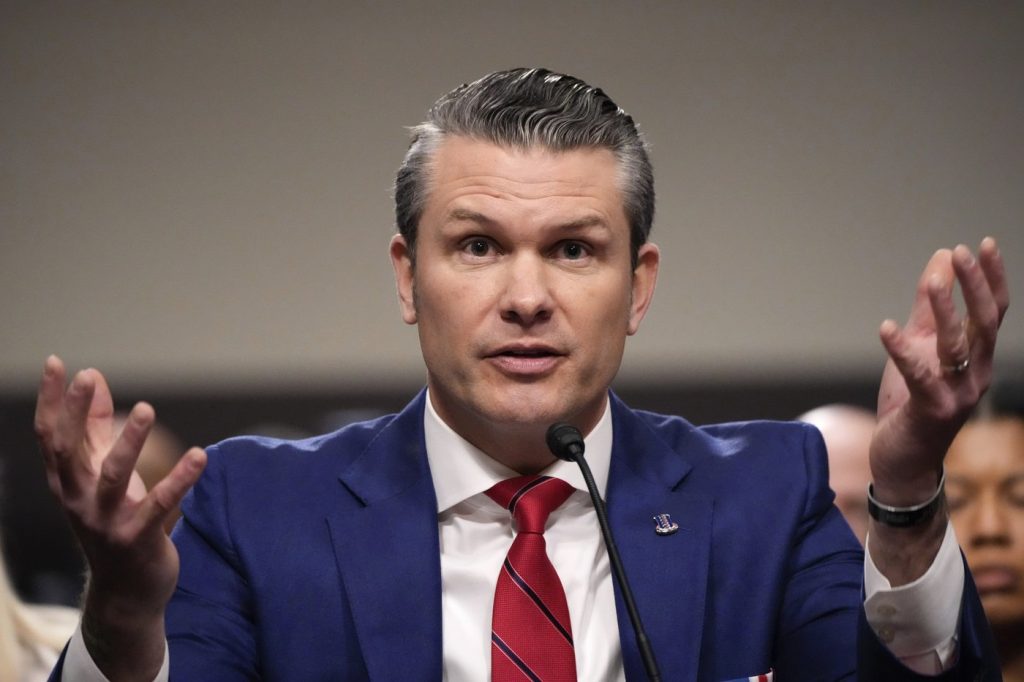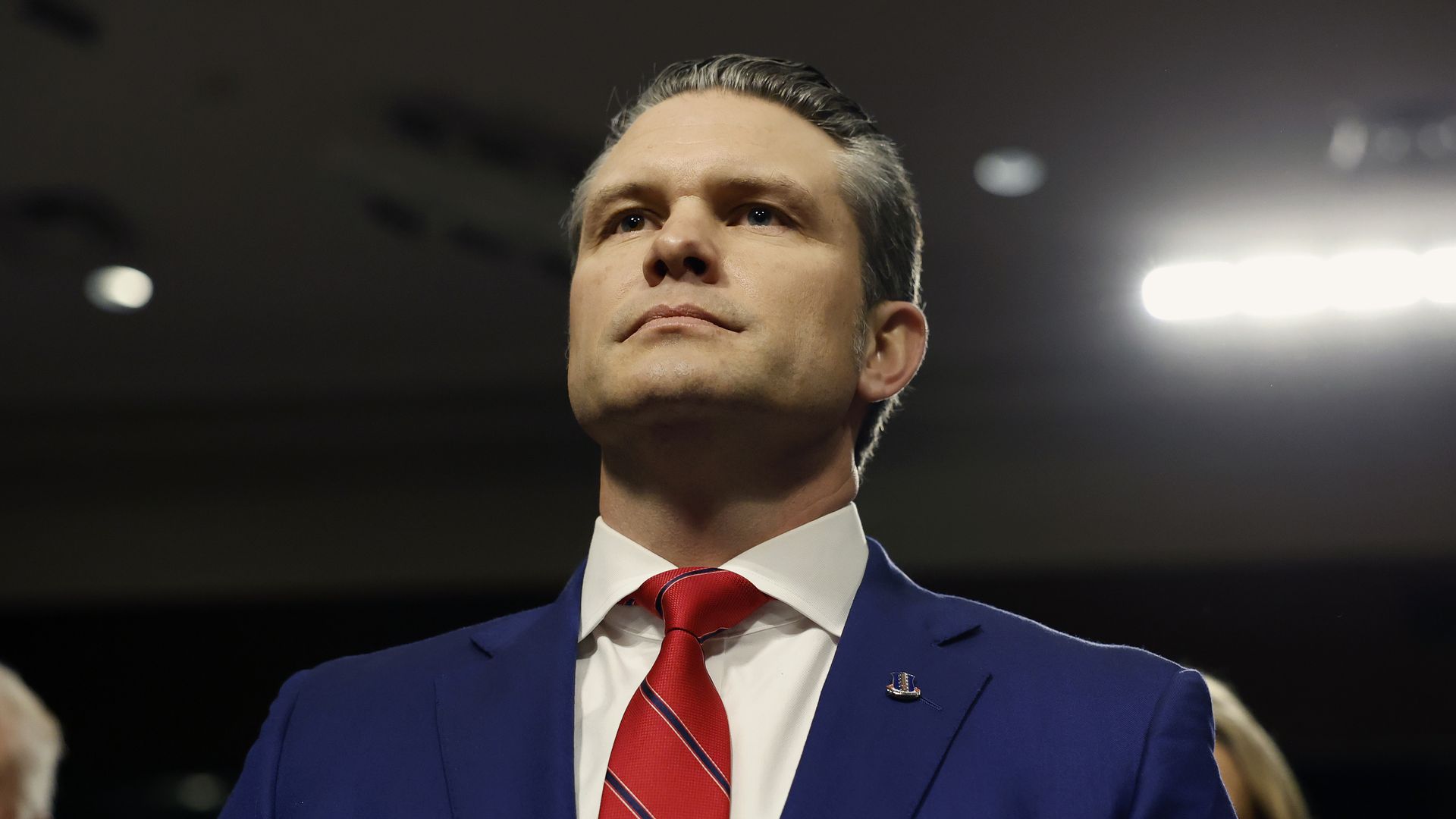
In a year marked by scandal, chaos, and infighting, Defense Secretary Pete Hegseth has found himself at the center of a storm that threatens to derail his tenure atop the Pentagon. Since the March 2025 Signalgate scandal, which exposed critical war plans to an unintended audience, insiders close to Hegseth say the man once known for his sharp decisiveness and bold vision has been deeply affected.
Described as "angry, unkempt, and tentative," Hegseth’s leadership style has become a point of contention, with observers questioning his ability to lead in the midst of growing internal strife.
The Signalgate scandal, which occurred when Hegseth mistakenly shared military war plans on a Signal group chat that inadvertently included Jeffrey Goldberg, the editor-in-chief of The Atlantic, set off a chain of events that has left Hegseth and the Pentagon in disarray. For Hegseth, it marked a turning point. Sources close to the defense secretary have described him as a changed man since the scandal broke.

Those who once admired his eager approach to military reform now report a leader paralyzed by fear of making further mistakes.
According to six Pentagon insiders speaking to New York magazine, Hegseth has become more prone to anger and less likely to take charge. “He seemed reluctant to make decisions; scared of doing the wrong thing, paralyzed as he awaited orders from the White House,” one source remarked. For a man known for executing bold plans with precision, this shift has been jarring.
Until the Signalgate incident, Hegseth had been eager to push forward his vision for the military—ranging from overhauling strategic operations to embracing more aggressive postures in global defense policy. However, since the scandal, insiders say the Pentagon has become “a mechanism for implementing executive orders,” devoid of Hegseth's previous creativity and ambition.

Adding fuel to the fire, Pentagon insiders reveal that Hegseth’s leadership has been marred by internal chaos, as rival factions within his administration have fought for power. One of the most controversial figures in this battle has been Joe Kasper, Hegseth’s former chief of staff. Kasper, who was ousted in late April after what sources describe as a “knife-fight” with other Pentagon aides, faced widespread criticism for his handling of leaks and for his unconventional behavior.
Kasper was known for his refusal to adhere to basic professional norms—most notably, his eccentric choice to attend meetings without socks, even when meeting with foreign dignitaries such as the Japanese prime minister. While this may seem trivial, sources indicate that it exemplified his broader lack of discipline, which frustrated other Pentagon officials.
Even more damning were the swirling rumors about Kasper’s personal life, particularly those related to alleged drug use—rumors which he has vehemently denied. Kasper was tasked with investigating Pentagon leaks, a role that placed him at odds with senior aides, including Dan Caldwell, Colin Carroll, and Darin Selnick.
When these aides were fired in connection with the leak investigation, they expressed outrage, suggesting that the firings had more to do with personal rivalries than with the leaks themselves.
“We were thrown under the bus for reasons that had nothing to do with the leaks,” one of the ousted aides, Dan Caldwell, told New York. The fallout from these firings has been substantial, with Hegseth’s ability to manage his team increasingly questioned.

While Hegseth tried to maintain control, Kasper’s presence within the Pentagon became a symbol of the internal dysfunction. According to the sources, Kasper’s ongoing struggle with other Pentagon aides was more than just a minor clash of personalities—it represented a deeper issue within the department.
Kasper’s ineffectiveness in managing the Pentagon’s day-to-day operations, compounded by his erratic behavior, fueled the growing discontent within Hegseth’s inner circle.
Despite multiple complaints about Kasper’s conduct, Hegseth resisted calls to fire him, even from his closest allies. One insider suggested that Hegseth’s reluctance to act was motivated by his concern over media perception. “Hegseth sees everything through the lens of media,” one source said, adding that he feared firing Kasper would be seen as an “early L” in his leadership.
This hesitancy only further fueled the perception that Hegseth was losing his grip on the department.
As the situation worsened, the ongoing leaks and the fracturing of Hegseth’s team consumed his attention. “The situation was consuming his whole life,” one insider remarked. “When he should have been focused on our national security, he was instead bogged down by personnel issues.”
:max_bytes(150000):strip_icc():focal(968x599:970x601)/Pete-Hegseth-042325-9cefdf83709746eb97441bae09759809.jpg)
The firing of Caldwell, Selnick, and Carroll added to the toxic atmosphere inside the Pentagon. All three were longtime friends of Hegseth, and their ouster has left deep scars. “He was a good friend of mine for 13 years,” Selnick said, expressing disbelief at how Hegseth had turned on them.
“How could he so callously throw us under the bus like this?” The disillusionment among his closest allies speaks to a broader sense of instability in Hegseth’s leadership.
The firing of these top aides also signaled a breakdown in communication and trust between Hegseth and the Pentagon’s senior staff. As the White House struggled to maintain support for Hegseth’s leadership, the fallout from these personnel decisions has only added to the narrative of chaos surrounding his tenure.

Despite the growing criticism from within the Pentagon, both the White House and the Pentagon have made efforts to publicly back Hegseth. A Pentagon spokesperson dismissed claims of chaos, calling them “false” and accusing the media of disrespecting the servicemembers who “selflessly serve our country.”
Meanwhile, the White House has asserted that Hegseth remains fully supported by President Trump. “While New York magazine is focused on propagating gossip, Secretary Hegseth is focused on restoring military readiness and lethality, which is why he has President Trump’s full support,” White House spokesperson Anna Kelly said in a statement.
However, the situation on the ground suggests that Hegseth’s leadership is increasingly under threat. His inability to fill key positions, including a chief of staff or deputy chief of staff, highlights the extent to which his authority has been undermined.

According to sources, the reluctance of senior defense figures to take on these roles—partly due to Hegseth’s refusal to accept the White House’s candidates—further isolates him within the Pentagon.
As Pete Hegseth continues to grapple with the fallout from Signalgate and the internal turmoil at the Pentagon, the question remains: can he restore his leadership and focus on the critical task of national defense, or has the chaos and infighting irreparably damaged his ability to lead?
With pressure mounting from all sides, the next few months will be crucial in determining whether Hegseth can emerge from the storm stronger, or if his tenure will be defined by scandal and division.
Only time will tell if he can regain the confidence of his staff, the Pentagon, and the American public.



